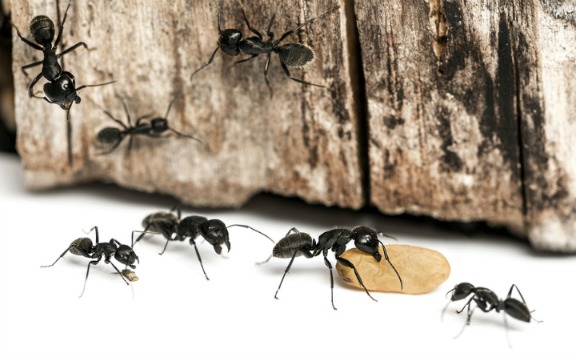In addition to ferrying goods, wooden pallets have also been known to ferry pests, and the problem has grown with the increase in international shipping of goods. In response, the International Plant Protection Convention treaty was created, which set forth the International Standards for Phytosanitary Measures, or ISPM15. Businesses that rely on pallet delivery need to be vigilant to avoid the risk of having their shipments held up or, worse, turned back for noncompliance.
ISPM15 stipulates that wood packaging material must be treated with heat or methyl bromide and stamped after treatment. Unfortunately, there are unscrupulous suppliers who have counterfeited the stamp or stamped pallets that were not, in fact, treated. Wooden pallets remain the most affordable shipping option, so they are the mainstay for many businesses. If you are purchasing your own pallets – as opposed to having them provided by a shipping company – first research suppliers and materials.
Distance permitting, consider visiting a few vendors unannounced to see their facilities and discuss their treatment processes. Ask whether they do their own refurbishing and how they source their raw materials. The supplier should control the whole process from start to finish to ensure the customer that the finished product is fully compliant.
Alternatively, if your budget can handle the added expense, explore using pallets made of other materials. Plastic, metals, and different types of composite wood are all resistant to pests, so that would be one worry you could cross off the list. Note that metal and composite woods can be heavier and thus add to pallet delivery cost.
You should visit the HM Revenue & Customs website to learn more about the regulations concerning wood packaging materials. National Pallets can provide all you need to know about pallet delivery within the UK and many EU countries.

